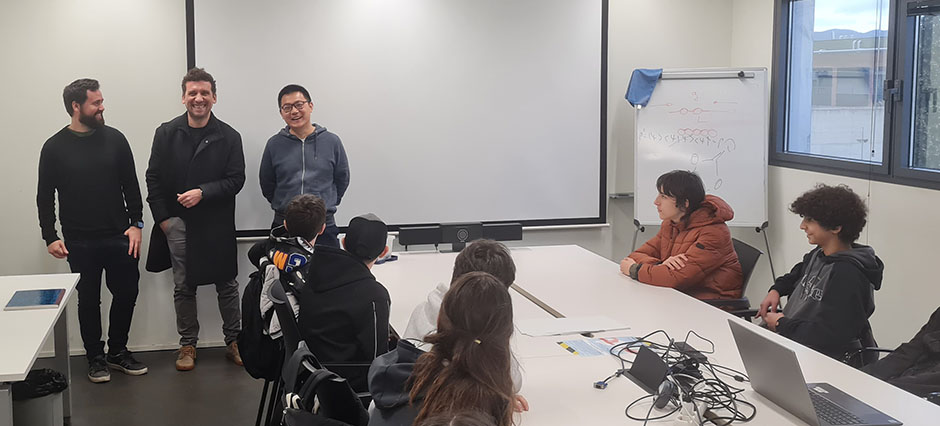Wednesday, 08 February 2023
Institut Anegeleta Ferrer students visit ICN2 for innovative STEAM education experience
Experimental pilot brings science and technology to life for secondary school students. This activity was co-designed with the education staff of the Institut Angeleta Ferrer and researchers from several BIST centers, including ICN2.

On February 7th, 2nd ESO students from Institut Angeleta Ferrer visited the ICN2 as part of a pilot experience. This public high school located in Barceona has a special approach towards science teaching, and teams up with BIST and the Catalan Education Department as part of their three-year joint effort to update the teaching of science and technology in the Catalan education system. The students were accompanied by Dr Ruslan Álvarez, Senior Postdoctoral Researcher, and Dr Gabriel Maroli, Research Assistant, from the ICN2 Nanobiolectronics and Biosensors Group.
The purpose of the visit was to install sensors to measure air quality data within and outside the educational center, and to allow students to participate in the experimental process and analyze the data. This pioneering interaction with educational centers aligns with BIST and ICN2's strategy to work closely with the educational community and bring science closer to young people. The students also visited iconic spaces within ICN2 and discussed the experimental design and hypotheses to be explored for the upcoming two weeks.
The visiting students also had the oportunity to learn about LEONIDE. This project, funded by the Barcelona City Council and led by ICN2 young researcher Dr Peng Xiao, from the ICN2 Phononic and Photonic Nanostructures (P2N) Group, will study the application of 2D materials in sound and humidity sensors. These devices will be used by students from local high school for climate and health-related field investigation.
This visit marks a new era in STEAM education shared with BIST and Institut Angeleta Ferrer, which aims to become a center for innovation in science education and STEAM disciplines (science, technology, engineering, arts, and mathematics). The center will generate new knowledge and tools for STEAM learning, linked to scientific research carried out at BIST centers, and will serve as a place for teacher training.

